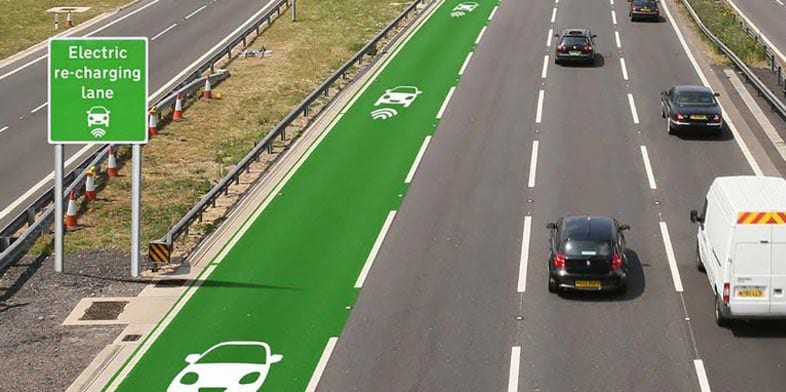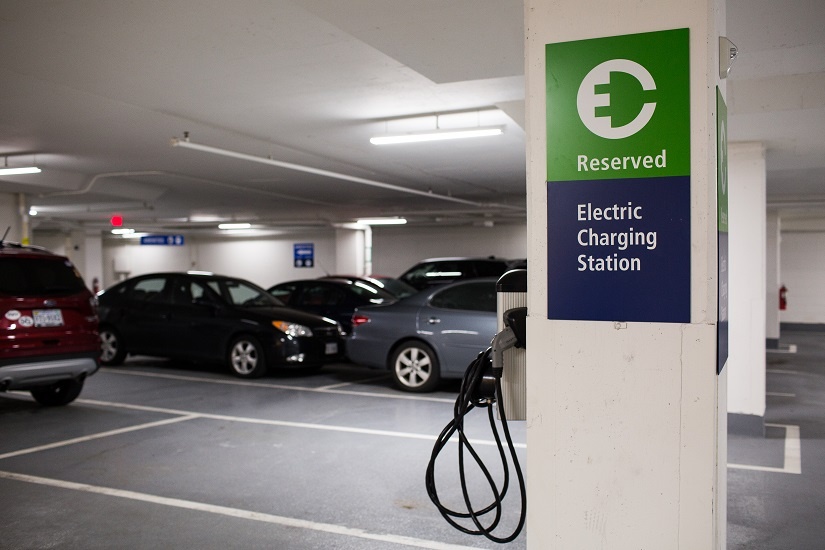
The biggest breakthrough on increasing the number of charging locations for electric vehicles happened this year in Detroit, San Francisco, Sweden and Japan. It also happened in a surprisingly simple way: Electrifying existing roads and highway lanes. Even better is construction is relatively cheap AND fast.
How it works is wireless charging pads are installed about a foot under roads and highways. When EVs drive over the road or lane, the Ion Lithium Batteries will automatically begin to be Fast Charged. Companies are working with governments to upscale construction and get as many roads electrified as quickly as possible. Once you do that, the retail costs of EVs will naturally plummet.
What’s that? “What if there’s some kind of natural disaster that knocks out power in an area?” Not a problem since some companies have figured out a way to make solar panels you can drive on. Meaning even if there’s some kind of diseaster or weather situation that knocks out power to an area, you will still be able to charge your car.

This is to say nothing of ongoing efforts to install charging stations in public and private parking garages and parking lots around the world. America is leading the way in this endeavour. There is increased pressure from car makers like Tesla, GM and Ford in particular to get charging stations in every city, town and rest stop in America as quickly as possible.
Why? Because they’re salivating at the prospect of the biggest economic boom in the history of the industry in 100 years. Germany invented the first automobile in 1985 but the automobile industry was made in America about 100 years ago. The industry as well as fossil fuel companies from around the world are investing hundreds of millions of dollars into installing recharging stations in as many locations as possible.
On that last point. Yes, fossil fuel companies like Exxon-Mobil and Shell have been researching green fuel for at least the last 15 years. They are currently working on developing high-capacity Ion Lithium batteries for cars though I do know both Exxon-Mobil and BP in particular are working on mass producing plant-based diesel fuel. They figured out how to do it so now it’s just about building the necessary facilities to mass produce it.
In the meantime, I do think Fossil Fuel companies should lead the charge in putting that industry out of business. They already know fossil fuel is politically toxic and now that we are entering a new era of renewable energy, they should take point in the changeover. To speed things up, I say loosen the regulations and restrictions currently in place in the U.S. Within a decade, OPEC will be irrelevant.

I’d be remiss if I didn’t talk about another kind of infrastructure that is now an unofficial utility for most of the world: Wireless high-speed Internet.
The Pandemic was a reminder of how dependent most of the world is on having access to high-speed internet. It also forced companies, governments and internet service to take bringing high-speed internet to suburban and rural areas much more seriously.
The biggest thing that’s been holding up those efforts in the U.S. and Europe in particular has been finding property owners willing to let them build Wi-Fi Towers and Wi-Fi Antennas on their buildings/property even with financial incentive offered. Why? Well, they ARE a bit of an eyesore. You have to try to really notice them in urban areas.
I live in Boston. We have something called Free Public Wi-Fi offered by not just the city and internet service providers but businesses, nonprofits, restaurants, hospitals and colleges (as long as you’re on their property in almost all cases). The sane is true for most cities across the world. The Pandemic exposed a lot of gaps in terms of high-speed wireless internet access across the U.S. in particular. Now there are renewed efforts to address that problem where it’s needed.
Not seeing efforts in your area of the U.S.? Contact your elected officials and demand they take action.
If you have enjoyed this post or other posts I have made on this blog, please consider making a monetary donation via PayPal. Whatever amount you can provide would be greatly appreciated.